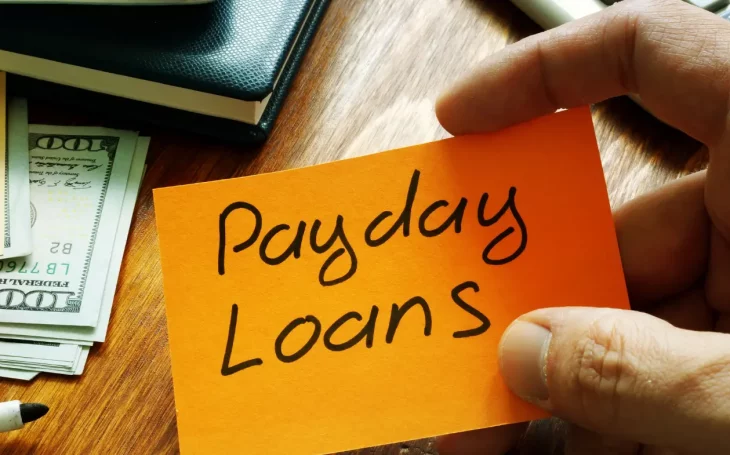
Reevaluating Your Spending Habits
Money has a way of moving in and out of our lives so quickly that we often don’t stop to think about where it’s going. Most people spend without much reflection, and that can lead to missed opportunities for saving, investing, or reaching personal goals. Reevaluating your spending habits gives you the chance to pause, look closely at your choices, and create a clearer path forward. Just as people sometimes turn to the best debt relief programs & companies to find structure and guidance, taking time to review how you spend provides clarity and direction in your financial life.
Noticing Patterns You Didn’t See Before
One of the most eye-opening parts of reviewing your spending habits is realizing how small, repeated expenses add up. It’s not always the large purchases that throw off your budget—it’s the daily coffee runs, subscription services you forgot about, or the impulse buys while shopping online. Tracking your expenses for a month or two helps highlight these patterns. Once you see them clearly, you can decide if they’re aligned with what you really value or if they’re simply habits you’ve picked up without much thought.
Separating Needs from Wants
Another important part of reevaluating spending is learning to separate needs from wants. Needs include essentials like housing, food, utilities, and healthcare. Wants are the extras that add comfort, entertainment, or status. Neither is inherently bad, but when wants start outweighing needs, financial stress usually follows. Asking yourself whether a purchase falls into the category of need or want helps you prioritize. This small mental check can shift your perspective and prevent overspending in areas that don’t move you closer to your goals.
Creating Space for Long-Term Goals
When you take a closer look at your spending, you often uncover opportunities to redirect money toward bigger, long-term goals. That could mean saving for a home, building a retirement fund, or setting aside money for travel. Without reflection, it’s easy for those goals to feel out of reach. But when you cut back on unnecessary spending and shift those funds into savings or investments, you see progress faster than expected. Reevaluating your habits creates the breathing room needed to support your future.
Being Honest About Emotional Spending
Spending isn’t just about numbers; it’s also about emotions. Many people shop when they’re stressed, bored, or even celebrating. This type of emotional spending provides a quick sense of relief or joy but often leaves behind regret or guilt. Recognizing your emotional triggers is key. Ask yourself: Am I buying this because I need it, or because I’m trying to change how I feel? Once you identify your triggers, you can find healthier ways to cope, such as exercising, journaling, or connecting with friends, instead of relying on purchases to manage emotions.
Testing a Pause Before You Buy
A simple but effective strategy for resetting your spending habits is practicing the pause. Before buying something, especially if it’s not a necessity, wait 24 to 48 hours before making the purchase. This pause helps reduce impulse buying and gives you the chance to reflect on whether the item truly adds value to your life. More often than not, you’ll find that the urge to buy fades, and you’ll be glad you waited. This method is easy to implement and can save you hundreds of dollars over time.
Involving Your Values in Every Dollar
The most sustainable way to reshape your spending habits is to connect your money choices to your values. When you know what matters most—whether that’s family, freedom, education, or travel—you can make spending decisions that reflect those values. This shift moves your focus from what you’re giving up to what you’re gaining. Instead of feeling deprived when cutting back on extras, you feel motivated knowing that each choice brings you closer to what you truly want in life.
Practical Tools for the Process
Thankfully, there are plenty of tools to make the process easier. Budgeting apps help categorize expenses automatically and show you where money is going in real time. Setting alerts for spending limits or using cash envelopes for certain categories can create accountability. Even something as simple as checking your bank account daily can raise awareness and help you stay mindful. The goal isn’t just to track money—it’s to develop a relationship with your spending that feels intentional and empowering.
Celebrating Progress, Not Perfection
Reevaluating your spending habits isn’t about being perfect or never making a splurge purchase again. It’s about becoming more aware and making changes that feel sustainable. Progress may look like cutting back on one subscription service, choosing to cook at home twice a week instead of eating out, or setting aside a small automatic transfer to savings. These incremental changes add up over time and reinforce the sense that you are in control of your money, rather than the other way around.
Final Thoughts
Spending habits are powerful, but they don’t have to be permanent. By reflecting on where your money is going, identifying what matters most, and making small adjustments, you can reset your financial path. Reevaluating your habits is not just about cutting back—it’s about realigning your financial decisions with your goals, values, and dreams. With awareness, patience, and practical strategies, you can create a spending approach that supports both your present and your future.
Popular Categories





